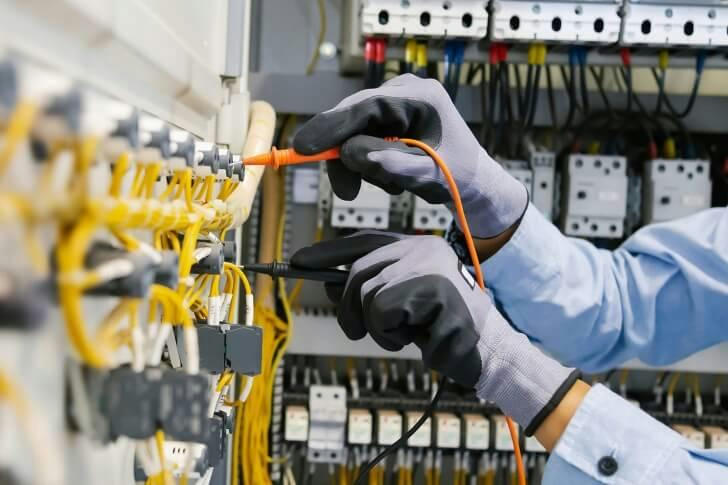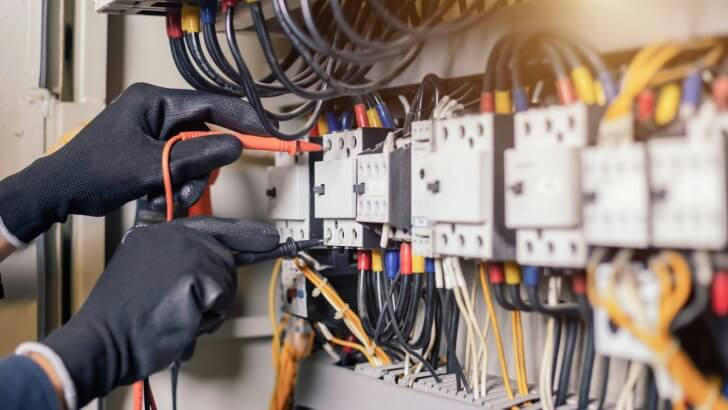Electrician Industry Demand Soars !
Over the past decade, the electrician industry in the United States has experienced significant growth, becoming a critical factor in economic development. Various elements are fueling this demand, including the modernization of aging infrastructure, the adoption of renewable energy technologies, and the proliferation of smart technologies. This article will delve into the current job market scenario for electricians in the U.S., explore future prospects in this field, provide practical case studies, and offer some advice for individuals interested in entering this industry.

Current Employment Landscape for Electricians in the U.S.
High Demand and Job Growth
According to data from the Bureau of Labor Statistics, the employment growth rate for electricians is projected to reach 8% over the next decade. This growth rate not only exceeds the average for all occupations but also reflects the strong increase in demand across related fields. The key factors driving this increased demand include:
Infrastructure Upgrades and Maintenance: Many of America's infrastructures, including power distribution networks and public transportation systems, are decades old and in dire need of modernization. These projects require a significant number of professional electricians for design, installation, and maintenance.
Expansion of Renewable Energy: With increased investment from both government and private sectors in wind, solar, and other renewable energies, new power facilities require skilled electricians for construction and operation. This trend is particularly evident in wind farms in Texas and solar farms in California.
Integration of Smart Technology and IoT: The ongoing expansion of smart home devices and ecosystems has driven changes in the skills required of electricians. Electricians now need to master not just basic electrical technologies but also network configuration and security system setup.
Salaries and Work Environment
The salary levels in the electrician industry have steadily increased. In 2023, the median annual wage for electricians was around $56,000, with those possessing specific technical licenses and experience earning even higher pay. For instance, electricians certified in solar technologies or with data center experience often receive lucrative compensation packages. At the same time, electricians work in varied environments, ranging from residential and commercial to industrial settings, adding diversity and complexity to the work.
Safety and Technical Challenges
A significant challenge for electricians is the safety of their work environments. Although modern equipment and technology are gradually reducing the incidence of accidents, the work of electricians still carries inherent risks. Thus, occupational health and safety training and education are crucial.
Future Prospects and Opportunities

Specialization and Continuous Learning
As the electrical industry continues to expand, there is an increasing demand for more nuanced job skills. By obtaining specific domain certifications, electricians can enhance their competitiveness:
Solar and Renewable Energy Certifications: As renewable energy becomes more prevalent, electricians who understand its operational technologies will have more opportunities to engage in projects.
Technology for Smart Buildings and Automation Systems: Electricians with a comprehensive understanding of smart building electrical systems can play key roles in commercial and industrial projects.
Diversity of Career Paths
The electrician industry offers flexible career paths beyond traditional construction and maintenance roles. Experienced electricians can succeed in positions such as project managers, technical consultants, or independent contractors. Technical progress, coupled with businesses' demands for advanced managerial technologies, enables such transitions.
Keeping Pace with Technological Advances
The accelerated rate of technological updates in the electrician industry requires practitioners to continually learn and adapt to new environments. The construction of electric vehicle charging stations is a prime example, where electricians need to possess skills in EV charging technologies and grid management.
Practical Case Studies
New York Infrastructure Modernization Project
New York City's subway system, operational for over a century, requires a modernized upgrade of its complex signal systems. Supported vigorously by the government, this project employs hundreds of electricians to ensure the installation of upgraded signaling equipment, power networks, and safety systems. This initiative not only enhances New York's transportation efficiency and safety but also showcases the vital role electricians play in critical public projects.
Midwest Wind Power Plants
States in the Midwest, particularly Iowa and Oklahoma, are renowned for large-scale wind power projects. These projects necessitate deploying electricians for on-site installation and regular maintenance, offering a plethora of employment opportunities. Simultaneously, they stimulate industry talent growth through presenting new technical challenges.
Advice and Insights

Acquire Certifications and Participate in Training: Individuals aiming to work as electricians should strive to acquire necessary professional qualifications and participate in various technical training to master emerging electrical technologies.
Stay Updated with Industry Trends: Keeping abreast of the latest technologies and industry trends helps electricians maintain their competitive edge, particularly in rapidly evolving fields like smart grids and new energy construction.
Build a Strong Professional Network: Joining electrician associations or regularly attending industry conferences can help in building professional networks for sharing experiences and obtaining the latest industry information, thereby enhancing professional capabilities and expanding career opportunities.
By honing their professional skills and technical abilities, electricians can maintain competitiveness amid the fast-changing market demands. This not only advances individual career development but also provides foundational support for the industry in broader economic and technological progress. Undoubtedly, the electrician industry's prosperity will continue, playing an increasingly important role in constructing future smart and sustainable energy systems.
